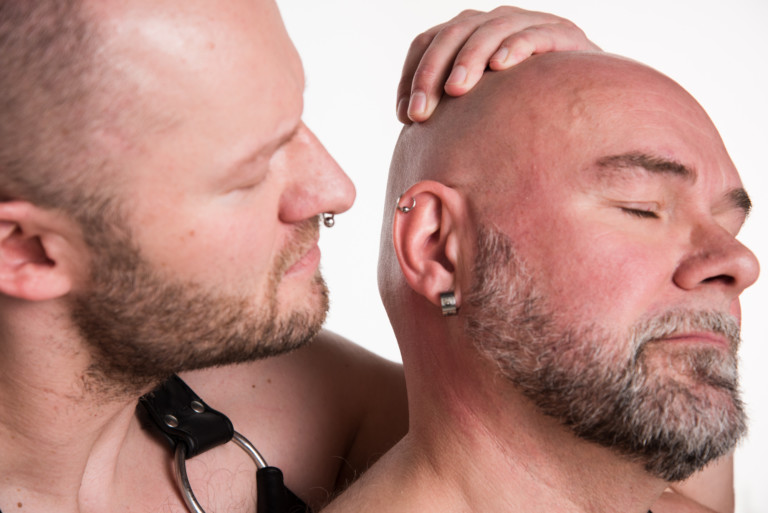
This text is a summary based on an article “PrEP increases sexual pleasure, intimacy, and closeness” by Andy Carstens, published on 11.3.2022 on the British AIDSMAP website by NAM.
Many people view PrEP as enhancing their sexual pleasure and intimacy, according to a new analysis. Despite many healthcare providers prescribing PrEP to people because of “risky behaviour,” Christine Curely and colleagues at the University of Connecticut say that more messaging around its potential to augment sexual pleasure could decrease stigma and improve uptake and adherence.
Shaming people who use PrEP began pretty quickly after it was first available. Some branded those who take it as “Truvada whores” (Truvada is the name of – people interested only in bareback sex with disregard for other STI infections. Unfortunately, those stigmatizing attitudes have persisted says Any Carstens who is a journalist at Aidsmap.
Thus far, not much research has focused on whether PrEP improves the sex lives of those who take it even though having a happy sex life provides multiple physical and mental health benefits. The current research aimed to explore the relationship between sexual pleasure and PrEP and whether sex-positive messaging could make taking PrEP more attractive to those who would benefit from it.
Analysis included 16 studies from the US, Canada, Australia, UK, France, Belgium and Uganda that centered on pleasure and PrEP with a total of 2658 participants, 98% of whom were men. The studies were mainly qualitative (10) and primarily assessed gay and bisexual men (14). Eleven of the studies included people from racially diverse backgrounds and two enrolled only Black participants. The participants were mostly single, but five studies investigated people in relationships.
Increased sexual options and reduced sexual anxiety
Analyzing these studies, the researchers found four common themes: PrEP was viewed as increasing intimacy, increasing sexual options, removing barriers to closeness, and reducing sexual anxiety.
Within the final studies, several showed that both single people and those in relationships were more likely to use PrEP because it offered the potential to increase closeness and intimacy, which is distinct from simply removing the physical barrier of a condom. “It’s just so much more intimate that I’m actually giving my body to somebody and letting them cum inside me,” one of the participants said.
Many described PrEP as sexually liberating, allowing a broader possibility of partners and less fear when having anal sex. “Sex isn’t meant to be something you’re ashamed or fearful of. Now that I can have bareback sex again, it’s just fantastic.” In addition, people reported that PrEP empowered them to define their own levels of acceptable risk. Although many reported using condoms less frequently, they said that PrEP didn’t cause them to abandon condoms altogether. Others expressed more comfort with bareback sex because HIV was the only STI they were concerned with. As one person put it, “Funerals are not held for chlamydia.”
PrEP reduces fears linked to sex
Of course, using PrEP allows people to have sex without the physical barrier of a condom, and unsurprisingly, people preferred the feeling of skin over condoms. However, removing barriers to closeness also meant eliminating the awkwardness of putting condoms on, the anxiety of maintaining erections while wearing them, and the worry that they would break.
While not taking PrEP, some people reported that fear of contracting HIV prevented them from fully enjoying sex, which agrees with other findings. “Who wants to be intimate with somebody and be in a state of terror? You know? You’re not giving your all,” one person said. Taking PrEP was associated with less anxiety, and therefore, led to more pleasurable sex. Ultimately, PrEP allowed people to shift their mentalities from thinking “sex is risky” to “sex is fun.”
The researchers suggest that clinicians should adopt a similar shift in thinking because sexual health is more than protecting against risk. When HIV prevention focuses too much on sexual risk, it ends up equating sex with other activities. Most things involve some degree of risk, but crossing the road, for example, doesn’t provide the same potential to connect with a partner. In other words, focusing on risk ignores the human right to sexual pleasure and intimacy.
The authors also say that more sex-positive messaging around PrEP could chip away at social norms that favor heterosexual sex or sex with condoms while stigmatizing casual bareback sex. However, they note that some medical providers may need additional training to adapt their own attitudes, which can serve as barriers to people taking PrEP.
In conclusion, the authors recommend that HIV researchers and clinicians “frame sex, sexual satisfaction, and sexual pleasure as valid objectives for persons of all sexual orientations and identities.”
Counselling at Hivpoint
Hivpoint has offered PrEP counselling for thousands of customers and promoted the availability of PrEP in Finland. Hivpoint’s clients have reported that PrEP has reduced the challenges of condom use as well as fear and anxiety related to sex. Prep has enabled many people to experience their sexuality more diversely, relaxed and freely.
In Finland, PrEP is available free of charge in all healthcare districts. The availability of treatment varies from region to region, for example, in the HUS area to access PrEP treatment one may have to wait more than a year.
Sources
Curley C et al. Pleasure and PrEP: A Systematic Review of Studies Examining Pleasure, Sexual Satisfaction, and PrEP. The Journal of Sex Research, online ahead of print, 28 January 2021.
